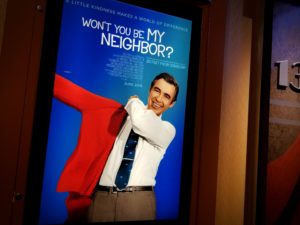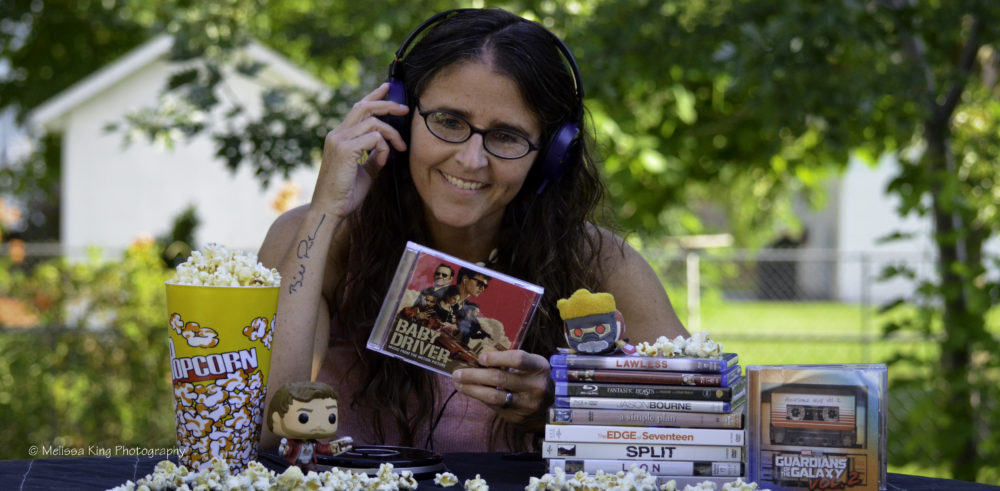 For someone who grew up admittedly being “scared to use words,” Fred Rogers certainly found an effective way to communicate.
For someone who grew up admittedly being “scared to use words,” Fred Rogers certainly found an effective way to communicate.
“Won’t You Be My Neighbor?” is equally effective in chronicling the beloved educational television program “Mister Rogers’ Neighborhood,” by combining behind-the-scenes looks and clips from the series; interviews with members of the Rogers family, and colleagues or guests from the show; direct-address and archived footage or voice-over from the star himself.
And the documentary-style film covers just about everything, from the show’s inception to its final episode to the passing of its host to the legacy he left behind.
The program took ordinary elements – “… low production values, an unlikely star, simple sets…” – and turned it into something extraordinary by daring to be everything that children’s television was not; it wasn’t fast or flashy or loud.
Mister Rogers felt it was important to “help children become aware that what is essential in life is invisible to the eye.”
The show was simple and direct and honest – and special. And so is “Won’t You Be My Neighbor?”
“When I look at the camera, I think of one person – not any specific person… but it’s always personal.”
And with that the faces of one child after another slowly make their way across the screen, the image of Mister Rogers subtly reflected in the bottom corner to fully express the impact of his statement; he may not know them by name, but clearly he’s speaking directly to every single one of these kids.
Look at the way he interacts with the children, the intensity with which he listens to them.
It’s fascinating to learn how some of the flesh-and-blood characters came to be and to learn the origin of the inhabitants of the Neighborhood of Make Believe – especially Daniel Striped Tiger, whose likeness is used in narrative illustrations throughout.
And it’s impressive to not only see but understand the journey of how this show came together – the impetus behind it; the research and effort initiated to develop meaningful discussions; the obstacles, challenges and potential derailments that surfaced along the way.
With the show, Mister Rogers took a “wonderful tool” of socialization and gave it power – because he listened, and he made children feel important, and he addressed the issues no one else would: death and divorce and children getting lost.
There was an episode on mistakes, during which Daniel Striped Tiger doubts his worth, and one of the show’s producers was both shocked and impressed by the topic: “I can’t believe Fred had the courage to put this into words,” she said.
The show deftly handled timely social issues, such as racial segregation and political assassination.
And by doing so it opened the doors of communication and gave parents ideas on how to talk to their children about serious matters.
But it always came back to this: “Sometimes we need to struggle with tragedy to feel the gravity of love.”
Truly.
I took way too many notes while watching this flick, but it’s because everything here is so important and deeply profound in its simplicity.
“Won’t You Be My Neighbor?” doesn’t present any real surprises; it isn’t that kind of movie.
Instead it’s a full-range look at one man’s “abiding interest in children and an equally abiding belief that they deserve more from public television.”
It’s whimsical and nostalgic, thought-provoking and sweet. It shows how “Mister Rogers’ Neighborhood” encouraged artistic expression and emotional exploration: “What do you do with the mad you feel?”
And it’ll hit you in the feels, man.
Whether or not you grew up watching Mister Rogers’ program – I did, but now I feel like I didn’t appreciate it enough – this flick outlining its intricacies definitely is worth checking out. It’ll make you long for the days when the world was simpler and slower and kinder.
His calming voice and friendly smile were welcome invitations to this quirky and wonderful little world.
Thank you, Fred Rogers, for making sure everyone who watched “Mister Rogers’ Neighborhood” knew and understood what it felt like to be special, “by just your being you.”
You have just enjoyed the insights of Movie Addict Mel, a cinema dork and conversational writer. Follow her on Twitter @movieaddictmel, and “like” her Facebook page www.facebook.com/movieaddictmel. You also can email her at movieaddictmel@outlook.com.
